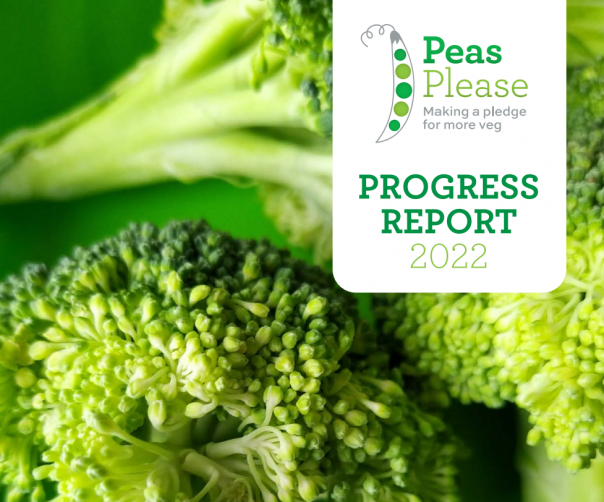Peas Please Progress Report highlights challenges ahead for food industry

Peas Please business pledgers have achieved 771 million extra portions of vegetables sold since the initiative started five years ago. Pledgers achieved 147 million portions in the past 12 months alone which is smaller than the previous year where 461 million portions were added.
The progress report now shows that Peas Please has commitments from more than 100 supermarkets, restaurant chains and other major food industry players. They are aiming to tackle Britain’s deepening public health and environmental crisis by boosting vegetable consumption.
Rebecca Tobi, The Food Foundation’s senior business and investor engagement manager, said: “This has been a difficult year for food businesses and households, and things are likely to get worse as the cost-of-living crisis deepens. Although we have seen Peas Please progress stall this year with worrying indications that families are having to cut back on veg, it is encouraging to see many of our pledgers continuing to work to champion veg.
“It has never been more important to make sure that households are still able to access and afford vegetables, with decisive action from the retail and out of home sectors to protect veg from the worst effects of the cost-of-living crisis urgently needed in 2023.”
Almost half of low-income families are buying less vegetables with inflation in vegetable prices running at almost 14% compared with around 7% for sweets and chocolate.
Peas Please pledgers remain committed to the programme, which has two core objectives:
- Mandatory reporting as promised in the Government Food Strategy for all large food businesses. This would support a transition towards more plant-based food consumption by tracking sales of fruit and vegetables rather than animal-derived proteins, as well as progress in the drive to reduce sales of high fat, salt, and sugar products
- Three billion extra vegetable portions sold by next Summer by the pledger community with more effort to ensure low- and middle-income households can afford vegetables
Claire Atkins-Morris, director of corporate responsibility at Sodexo, added: “Sustainable eating is an important focus for so many reasons from nutrition, cost and carbon emissions. This report acts as a reminder that industry has a part to play in providing responsible options and therefore supporting the communities where we live, work and play.
“This year’s report has also highlighted the multiple demands and impacts affecting the food service industry over the past couple of years. Despite these challenges, there is a need to navigate how supply chains can be managed with the environment and society in mind, ensuring that the focus on delivery of food shouldn’t mean the reprioritisation of climate targets.”
